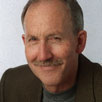Today’s column riffs off our recent visit to the John F. Kennedy Library and Museum in Boston – and recalls a visit two years ago to the Lyndon Baines Johnson Library and Museum at the University of Texas, Austin. We were in Austin to write about the 2008 presidential primaries.
At the time, here’s what I wrote for my blog:
Given the anemic performance of the national government in recent years, it is astonishing to consider what was accomplished during the five years that Lyndon Baines Johnson of Texas was president of the United States.
Begin with the Civil Rights Act, Medicare, the Voting Rights Act, Headstart, Public Broadcasting, the National Endowments for the Arts and the Humanities, dozens of education of bills, including the Elementary and Secondary Education Act. The list goes on and on.
But Johnson’s place in history lives under the grim shadow of the Vietnam War and the glamorous memory of his martyred predecessor, John Kennedy.
On Friday, with no candidates in sight, we rode the Dillo (Austin’s free bus service) up to the Johnson Presidential Library on the University of Texas campus.
For someone who lived through it, it’s difficult to visit the library without thinking about the time when Americans lost their optimism. There were three assassinations – John Kennedy, Martin Luther King Jr. and Robert Kennedy – and a war that left the country divided and angry.
And trapped at the vortex of all these tragic events was a bigger than life, arm-twisting politician named Lyndon Johnson. Few leaders in American history were more adept at managing the levers of legislative power. And he was fired by a populist’s passion, shaped by the poverty he saw while growing up in the Hill Country of Texas.
Johnson’s first job out of college was teaching at a south Texas grammar school for Mexican-American youngsters who didn’t have enough to eat and who lived in houses with dirt floors. Years later, speaking to Congress, then President Johnson said that he never expected to be in a position where he could help those poor families, but now that he was, he was determined to act. The result was the most dramatic outpouring of social legislation since the New Deal. Johnson would have liked the comparison. As a young man, his hero was Franklin Roosevelt.
At the LBJ library, the stories of Johnson’s life are placed in the context of the times in which he lived, from the tribulations of the Great Depression to the turbulent 60s. And there is no attempt to varnish over the blemishes of a controversial politician whose methods were not always admired.
Two exhibits sound cheesy, but they are fun. An actor playing LBJ as majority leader of the Senate looks and sounds like the original, and he seems to have an encyclopedic knowledge of Johnson’s life.
Then there is the life-sized, Animatronic LBJ, leaning on a fence and telling stories, using actual recordings. LBJ story: A fellow who was losing his hearing asks his doctor for help. The doctor tells him to stop drinking. Three months later, the fellow’s hearing has declined, and the doctor wants to know why he didn’t stop drinking. Well, the fellow says, I liked what I was drinking better than I liked what I was hearing.
OK, it’s a little cheesy.
In 1961, President John Kennedy assigned his new vice president, Lyndon Johnson, to be responsible for the nation’s space program and for developing civil rights legislation. On both counts, the 1960s may have been the most successful time in the nation’s history.
In many ways, Johnson may be the most unappreciated president of the 20th century. Unfortunately for him, there will always be Vietnam.
Johnson surprised the country in 1968 by announcing that he wouldn’t seek a second term. Three years later, he was dead.
Footnote: When Barack Obama spoke at Johnson’s alma mater, Texas State University at San Marcos, the other night, he was introduced by LBJ’s grandson, Lyndon Nugent.

 Pete Golis is a columnist for The Press Democrat and a longtime resident of Sonoma County.
Pete Golis is a columnist for The Press Democrat and a longtime resident of Sonoma County.